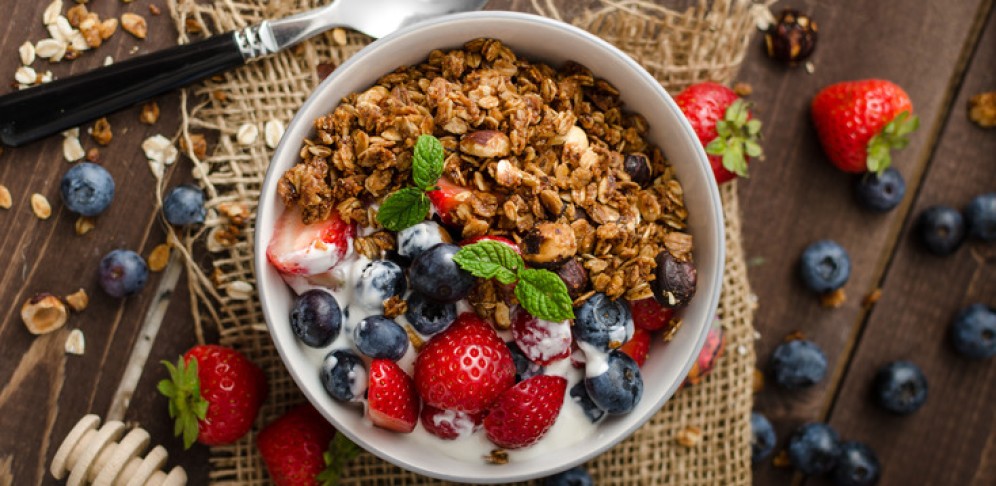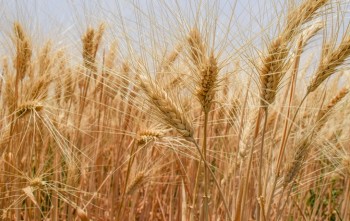Granola is: Nutritional Content and Health Benefits

Granola has become a popular choice for a healthy snack enjoyed between meals. Its versatility allows people to customize it to their liking by adding yogurt, milk, or fresh fruit. Consumer preferences for granola, including taste, texture, and ingredient preferences, have led to trends in consuming granola. Consumers are also more interested in organic options or gluten-free content when it comes to granola.
Several studies have assessed the contribution of granola to daily nutritional needs and overall health, examining how granola consumption can impact energy levels and feelings of fullness. This has led to an understanding of granola's role as a breakfast option that provides sustained energy throughout the morning.
Exciting, isn't it? Let's delve deeper into the benefits of granola through the explanations below!
What Is Granola?
Granola is a combination of foods made up of ingredients like oats, natural sugars, healthy oils, and optional additions such as nuts, seeds, or dried fruit pieces. This mixture is then baked until it becomes crispy. Granola is rich in fiber from grains and nutrients from additions like nuts, making it a popular food choice for a breakfast that provides long-lasting energy.
Studies have examined the nutritional content of granola, including macronutrient composition (carbohydrates, protein, fats) and micronutrients (vitamins, minerals). The effects of consuming granola are related to digestive health, including its potential to support regular bowel movements and promote intestinal health.
Some studies have also looked into the potential cardiovascular benefits of granola, especially due to the presence of heart-healthy ingredients like nuts and oats. These studies investigate how granola consumption can affect cholesterol levels and overall heart health.
Granola also contains carbohydrates from various sources. Research has examined the impact of granola on blood sugar levels and glycemic response, which is important for individuals managing conditions such as diabetes.
Differences Between Granola, Oats, and Wheat
Granola
Granola is a mixture of foods that consists of various ingredients such as grains, sugar, oil, and additives like nuts or dried fruits. This mixture is baked until it becomes crispy. Granola is commonly used as a high-fiber and nutritious breakfast or snack. Granola can also be customized with various additions according to taste, such as chia seeds or flax seeds.
Oats
Oats are grains that come from the oat plant. Oats have an outer protective layer known as the oat bran, which needs to be removed before consumption. Oats are typically processed into several forms, including oatmeal (crushed oats), rolled oats (whole oats crushed and rolled), and oat flakes (thinly sliced whole oats). Oats are a good source of fiber and can provide cardiovascular health benefits as well as help regulate blood sugar.
Wheat
Wheat is a cereal grain plant that produces wheat kernels. Wheat kernels, known as wheat berries, are a source of carbohydrates rich in amylose and amylopectin. Wheat is used in various products such as wheat flour, bread, pasta, and more. Wheat flour is often used in baking bread and cakes. Additionally, wheat can be consumed in the form of whole wheat berries, which contain dietary fiber and nutrients.
Nutritional Content and Benefits of Granola
The nutritional content and benefits of granola can vary depending on the ingredients used in a specific granola mix. In general, here are some nutritional components and benefits often associated with granola:
Nutritional Content
- Dietary Fiber: Most granola contains dietary fiber, which is good for digestion and helps keep you feeling full longer.
- Carbohydrates: Carbohydrates in granola provide sustained energy.
- Protein: Grains, nuts, and seeds in granola provide a source of plant-based protein.
- Healthy Fats: Oils and nuts in granola provide healthy fats, such as monounsaturated and polyunsaturated fats.
Benefits of Granola
- Long-Lasting Energy: The combination of complex carbohydrates, fiber, and healthy fats in granola can provide long-lasting energy.
- Healthy Digestion: The fiber in granola can help maintain digestive health and prevent constipation.
- Heart Health: The fiber content and healthy fats in granola can support heart health by reducing the risk of heart disease.
- Weight Control: The fiber content and longer-lasting satiety of granola can help with weight management.
- Nutrient Source: Granola can provide a range of vitamins and minerals, such as vitamin E, magnesium, and phosphorus.
Types of Granola
- Classic Granola: This is the common type of granola, consisting of a mixture of oats, grains, nuts, oil, and sweeteners like honey or maple syrup.
- Fruit and Nut Granola: This granola includes additional dried fruits like cranberries, raisins, apricots, or nuts such as almonds, Brazil nuts, or walnuts.
- Chocolate Granola: This type of granola includes chocolate additions, either in the form of chocolate chips or cocoa powder, to provide a sweet and chocolatey flavor.
- Protein-Packed Granola: This variant is enriched with additional protein sources like seeds, flax seeds, or plant-based protein powder to support muscle recovery and energy after physical activity.
- Low-Sugar Granola: This granola is made with fewer natural sweeteners, such as less sugar or natural sweeteners like stevia.
- Gluten-Free Granola: This granola is gluten-free and suitable for those with sensitivities or allergies to gluten.
- Savory Granola: As a variation, granola can also be made with savory seasonings like salt, pepper, and spices to provide a savory flavor rather than sweet.
- Customizable Granola: Many brands or granola recipes allow you to customize the ingredients to your taste and nutritional needs, such as adding chia seeds, flax seeds, or other nuts.
- Superfood Granola: This variant includes superfood ingredients like quinoa seeds, chia seeds, goji berries, or spirulina, which are considered to have additional health benefits.
- Sprouted Granola: This granola is made with sprouted grains, which can enhance nutrient content and ease digestion.
How to Consume and Serve Granola as a Breakfast Menu
Option 1: Granola with Milk or Plant-Based Milk Products
- Pour regular milk or plant-based milk (such as almond, oat, or soy milk) into a bowl.
- Sprinkle granola over the milk.
- Add fresh fruit pieces like bananas, strawberries, or blueberries for a fresh taste.
Option 2: Granola with Yogurt
- Take plain yogurt or plant-based yogurt (such as almond or soy yogurt) in a bowl.
- Sprinkle granola over the yogurt.
- Add slices of fruits like kiwi, mango, or apple for extra flavor and texture.
- If desired, drizzle with honey or maple syrup as natural sweeteners.
Option 3: Smoothie Bowl with Granola
- Make a smoothie from fresh fruits, vegetables, and milk or yogurt.
- Pour the smoothie into a bowl.
- Sprinkle granola over the smoothie.
- Add additional toppings like chia seeds, flax seeds, or nut pieces.
Option 4: Granola as Pancake or Waffle Topping
- When serving pancakes or waffles, sprinkle granola on top.
- Add fruit pieces like sliced strawberries or banana slices.
- Drizzle with honey or maple syrup as a sweetener.
Option 5: Granola as a Snack Between Meals
- Granola can also be served as a healthy snack between main meals.
- Carry granola in a small container or a portable package to consume when you feel hungry outside your home.
Additionally, you can customize the additional ingredients and serving methods according to your taste and nutritional needs. Be sure to choose granola with lower sugar content and quality ingredients to maximize health benefits.
Mythology Surrounding Granola
Accurate understanding of myths about granola is crucial in making healthy and informed food choices. While granola can be a nutritious choice, not all variants are the same, and their quality can vary. It's important to read labels carefully, choose variants with natural ingredients, and pay attention to added sugar and fat content.
Furthermore, granola is not a magic solution for weight loss or blood sugar management without a balanced diet and regular exercise. If there are doubts about the effects of granola on individual health or nutrition, consulting a medical professional or nutrition expert can provide appropriate guidance. By dispelling myths and understanding the facts about granola, we can make better decisions regarding food and nutrition that support our well-being.
Recommendations for Granola Breakfast and Snacks from YAVA
YAVA Granola represents the harmonious blend of delicious and nutritious components found in an appetizing combination. Its irresistible crunchiness envelops every bite. YAVA Granola brings the goodness of oats together with an exclusive formula of Bali red rice extrudates, cashews, and a variety of dried fruits (including chocolate). After being carefully crafted and baked to perfection, YAVA combines the best of the worlds of flavor, comfort, and nutrition.
The following elements will not be present in YAVA's product composition:
- No Preservatives
- No Synthetic Colors and Flavors
- No Sugar Alcohols or Artificial Sweeteners
- No MSG
- No Animal-Derived Ingredients. 100% Plant-Based
- Processed by Baking, Not Frying
Conclusion
In brief, granola is a mixture of foods consisting of grains and other additions that are baked, oats are grains from the oat plant that can be processed into various forms, and wheat is a grain plant that produces wheat grains used in various food products.
Several studies on granola have revealed nutritional content, including macronutrients and micronutrients. Consuming granola has a positive impact on digestive health and its potential to support regular bowel movements and intestinal health.
Research has also highlighted the potential cardiovascular health benefits of granola, thanks to the presence of healthy ingredients such as nuts and oats, which contribute to managing cholesterol levels and overall heart well-being. Granola has also been studied in the context of blood sugar responses and glycemic index, which is useful for blood sugar control, especially for individuals with diabetes.
YAVA Granola is a balanced choice between delicious taste and high nutritional value. From the composition of oats and Bali red rice extrudates to cashews and a variety of dried fruits, including chocolate, YAVA Granola combines deliciousness with optimal nutritional balance. YAVA Granola also emphasizes quality by eliminating preservatives, synthetic colors, artificial sweeteners, MSG, and animal-derived elements. Processed through baking, YAVA prioritizes healthier methods.
Therefore, it's essential to understand the myths and facts about granola and choose high-quality products like YAVA Granola that can provide real benefits to health and well-being. Consuming granola wisely as part of a balanced diet and physical activity is key to achieving optimal benefits.
Discover YAVA Granola product variants at your favorite online stores:


















